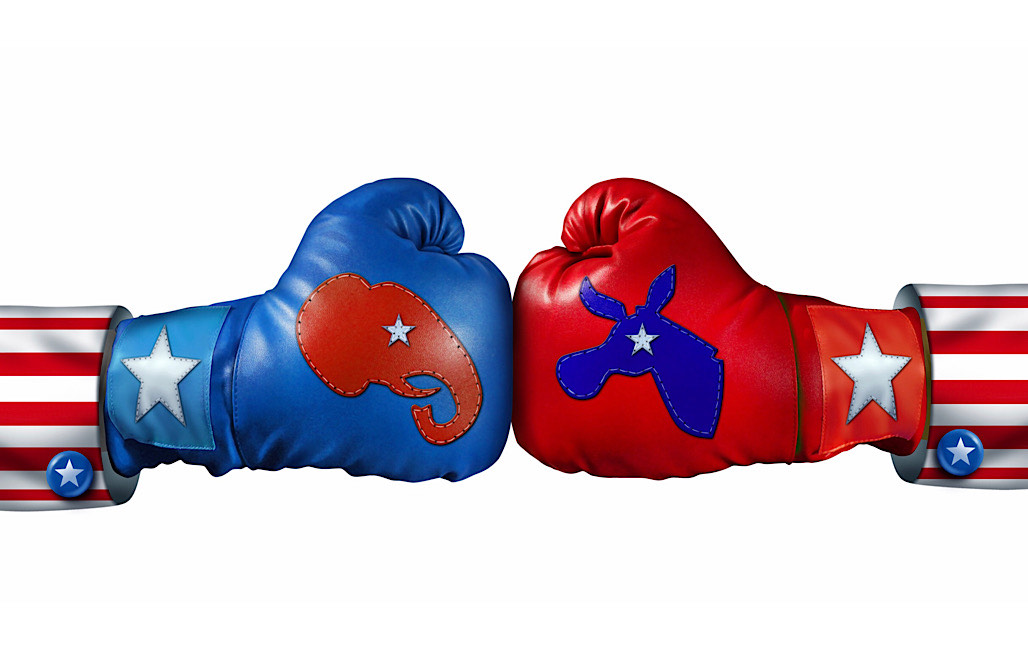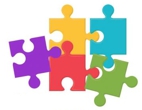 The ongoing pandemic, reports of police violence, and the upcoming election have created collective national stress and a fear of loss of control, according to experts.
The ongoing pandemic, reports of police violence, and the upcoming election have created collective national stress and a fear of loss of control, according to experts.
It’s not just you. Americans on both sides of the aisle are especially stressed out this election year.
More than 60 percent of Republicans and nearly 80 percent of Democrats report being stressed about the current political climate in the United States, according to the Stress in America 2020 report from the American Psychological Association (APA). And that’s not all, a Gartner study published in February 2020 found that nearly half of Americans reported being sidetracked at work by the upcoming U.S. presidential election. It’s a trend that appears to be growing.
In 2019, according to that year’s APA report, 56 percent of American adults were stressed over the upcoming presidential election, a 4 percent jump since 2016, when the APA first added political questions to its annual stress assessment. At that time, just over 50 percent of Americans reported being stressed about the upcoming 2016 presidential election.
“It’s a surprisingly high stressor,” says Vaile Wright, PhD, senior director of healthcare innovation in the practice directorate at the APA. “Typically, the biggest stressors have been work, money, family, or the economy. When we started asking about political stress, it kind of blew those out of the water.”
Political Stress in America Is on the Rise
According to Dr. Wright, this reflects a shift that researchers have been seeing take place over the past decade. People used to report personal stressors as being the most potent cause of stress in their lives. “Now we are seeing that national stressors are driving stress,” says Wright.
Compounded by the COVID-19 pandemic, mass shootings, reports of police violence, and healthcare worries, the current political climate and upcoming election fuel this collective national stress. It’s human nature, says Tracy Foose, MD, an anxiety specialist in Marin County, California, and associate professor of psychiatry at the School of Medicine at the University of California in San Francisco.
“With elections, like so many other external factors that cause people to experience anxiety, it’s about the absence of control, predictability, and certainty, and it’s something that is important to people,” says Dr. Foose. “It introduces this limbo state where people feel they have to sit and wait for the outcome, feeling like they have very little control over what happens.”
Foose likens this period to waiting for the results of a medical test, in which there is a specific outcome that you are hoping for and the results will greatly impact your life. To start coping with heightened stress associated with the upcoming election, and everything that goes with it, the first step is to acknowledge that it’s normal to feel stress, says Foose.
“There is so much uncertainty right now and so much real threat. Usually acute stressors happen, but not all at once and not to everyone at the same time. It’s healthy to observe and accept that there really are actually threatening things that are beyond any of our control right now, and this is a pretty unprecedented time,” says Foose. “We are going to feel scared, because that’s what we’re supposed to do as animals.”
How to Cope With Stress Caused by the Election
Simply put: “This is really happening, and it is really hard,” says Foose, who says that emotional acceptance is the foundation that new habits can be built upon. “Acknowledge that, ‘I feel mad, sad, and scared.’ People tend to invalidate those feelings and say, ‘If I was strong and brave, I wouldn’t feel sad or mad or scared so I should be ashamed.’ Stop trying to stop feeling bad things. Accept negative emotions about scary, upsetting things, and then choose actions that do make us feel like we can solve a problem.”
Once you’ve given yourself permission to acknowledge that your feelings are normal, try implementing coping strategies and de-stressing habits into your everyday life.
1. Break your day into solvable problems. According to Foose, making a list of solvable problems, such as cleaning the bathroom or fixing the dishwasher, is a positive self-soothing strategy. “We need little solvable problems to work on to feel grounded,” she says. “Tackling solvable problems is better than sitting around with Netflix and ice cream, which are also methods of self-soothing, but try to find meaningful and purposeful activities to do every day.”
2. Socialize in meaningful ways. Connecting with friends and family while maintaining a safe distance can still make a big difference in lowering stress, says Foose. Text five friends: I was thinking of you today. You’re a great friend. Hope you are doing well today. “It may reap some connection in return,” says Foose. Chances are that you and your friends share a sense of humor, which can relieve stress, too. A study published in June 2017 in The Journal of Neuroscience found that laughing with friends reinforces and maintains human bonds, and triggers the brain to release feel-good endorphins. Laughing with friends also reduces cortisol, the stress hormone.
3. Limit time on social media. Social media can be an overwhelming, hostile place that unnecessarily triggers the stress response, says Foose. “I don’t even like it when people I agree with are communicating with contempt and hostility, and maybe I could get this same information in another format,” she says. “Now that we live in a world so amazingly connected by devices and media, we’re alerted to threats we would not have thought of before.” A study published in August 2019 in Information Systems Journal found that not only does social media cause elevated stress levels but people actually become addicted to the feeling, meaning they spend even more time on social media. “Election anxiety is already exacerbated due to the excess time people are spending on social media due to having less structure, more free time, more time at home as a result of the pandemic,” says Amanda Fialk, PhD, chief of clinical services at the Dorm, a treatment community for young adults. Consider getting a web browser that limits the amount of time you’re allowed to spend on certain websites every day. Some phone apps do the same thing, or you could delete social media apps from your smartphone to prevent too much scrolling.
4. Read, don’t watch, the news. According to Foose, the inflections or tone of someone’s voice, or their facial expressions when they deliver information, can dictate how stressed we are by the news. “What’s interesting about social animals is that we have innate, intuitive, and vicarious fear. We don’t have to experience something ourselves. We can witness or hear about stuff to be afraid of that others have experienced,” she says, noting that this can be done by a newscaster expressing fear, even through body language. She recommends staying informed by reading the news instead of watching it or getting it from social media. However, even when you’ve switched to written news, make sure you’re striking a balance. “It’s important to stay informed, particularly at the local level, but it reaches a point where we aren’t learning anything new and we’re just exposing ourselves to negative stimuli over and over again,” says Wright. “Put the phone down, shut down the computer, disconnect, and do something else for a bit.”
5. Vote. “It’s the one thing you have in your control, and the one thing we have consistently heard from people is they feel better after they vote,” says Wright. It also doubles as a solvable problem. You can register to vote at Vote.org.
6. Set boundaries in conversations that cause stress. Avoiding social media and too much repetitive news won’t always protect you from being exposed to stress triggers related to the upcoming election. “It is okay to tell someone you do not want to talk about the election and would like to change the subject. You do not need to talk about the election with people if you feel that there is the potential for conflict to escalate,” says Dr. Fialk.
7. Don’t get ahead of yourself. Stressing out over the results of an election that hasn’t happened yet can be a vicious cycle. The ballots are not all cast, so don’t get ahead of yourself getting overly stressed about what the results could be, says Fialk.
By Kaitlin Sullivan
Medically Reviewed by Allison Young, MD
Last Updated: September 17, 2020
https://www.everydayhealth.com/stress/strategies-for-dealing-with-election-stress/
